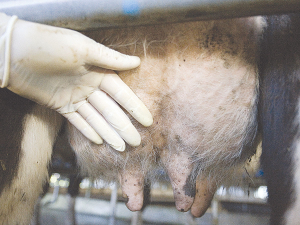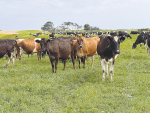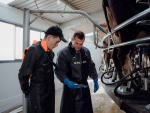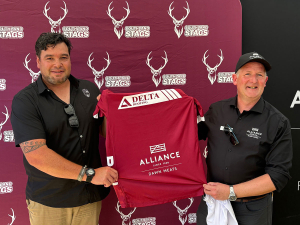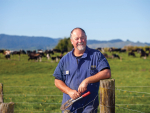Dairy companies have always wanted good quality milk — but what’s in it for farmers?
New Zealand is a leader in milk quality in supplying liquid milk not only to our own market but also milk and milk products to many other countries. So we are assessed locally and according to the increasing demands of the other markets we sell into.
Milk quality is measured both for compliance and payment. The dairy company is paying for the fat, protein and volume of milk. This system is fair and allows for seasonal fluctuations.
It also needs to check there are no contaminants in the milk and measure water (freezing point), antibiotics (inhibitory substances) and residues to ensure the integrity of the milk.
Next, the dairy company must ensure the milk is from healthy cows. Cows with mastitis will have an elevated somatic cell count (SCC). The lower the SCC the better quality the milk in the vat is, in terms of animal health. An elevated bulk tank SCC can also mean lower yield for products like cheese.
Finally, some parameters generally determine sanitary conditions. These are thermoduric, bactoscan and coliforms. Their presence is a concern because they can:
Survive pasteurisation (thermoduric) so can spoil manufactured product and cause food borne illness
Detect an uncontrolled hygiene or mastitis issue (bactoscan)
Imply unsanitary conditions (E. coli).
Selling into markets which are competitive is a reason to keep ahead of milk quality issues. To continue selling into offshore markets, NZ needs to supply the very best produce.
Consumers want to believe milk is healthy, ie comes from healthy cows. They are learning about practices on farms via social media. So consumers can be fickle if they believe a product is substandard. Some are switching to ‘nut milk’, having been put off cow milk by poor farming practices, eg BST hormone injections offshore.
Milk quality is an opportunity for NZ. Our almost exclusively grass-fed system is envied by the world. We have the fewest confined cows per cow head of population thanks to our mild climate.
Our system also lends itself to new knowledge about the composition of our milk, eg grass-fed butter and grass-fed beef are difficult to find offshore.
A key aspect of milk quality can be controlled -- knowledge. Whilst the dairy company will take note of every tank you supply, its job is not to coach you on improvement until you meet a limit, which is generally controlled by regulation. Instead dairy companies are increasingly offering farmers incentives for quality, rather than penalties. There’s kudos for farmers who produce good quality milk.
But what if your milk is not good quality, or its quality is good but you struggle with animal health issues? How can you improve your milk quality, and would doing so increase profitability?
Our company’s recent experience has shown that a snapshot test of your bulk tank can highlight deficiencies before they show up as problems or if they do show up as problems. Knowing the priority of bacterial types in the bulk tank, and where you may need adjustment, are the keys in being ahead of issues, be they mastitis or hygiene related.
Where to begin?
How many cows are in the bulk tank contribution and how many are out?
Alarmingly, about $55,000 is spent on mastitis annually for an average herd of 440 cows. Why are the cows out of the bulk tank? If they are out for mastitis have you taken cultures and provided treatment? (In many cases treatment can be better managed, so jumping in can mean more treatments than necessary and can mean less-than-effective treatments in some cases).
Knowing the bug before you use the drug helps track cows with issues such as Staph. aureus, so they don’t end up rebounding or infecting more of the herd. It’ll also mean you can treat according to a vet-developed protocol. In many cases this means fewer days of lost milk as the treatment can be targeted.
Look at the subclinical picture. Like the tip of an iceberg, focusing on the clinical picture tells you part of the story. The bigger part of the story is submerged in the secrets in the vat.
A snapshot test can tell a story about what you are missing. The best part is the cows aren’t sick, so it is a proactive and preventative strategy.
Be tough. Check which cows are coming into your herd by being careful. Cows for sale can already have problems that could spread in your herd. Be tough on mastitis: know the type of bugs you are treating and make a protocol with your vet to ensure you are dealing with contagious cows as well as cows that need regular treatment. Most of all, keep records and discuss findings so prevention can be discussed.
Check milking staff techniques and practices. Engage staff by developing them and encouraging best practice (if not yours then that of your vets and consultants).
Enhancing your milk quality offers plenty of benefits for everyone.
• Natasha Maguire is a director of Farm Medix Ltd.





